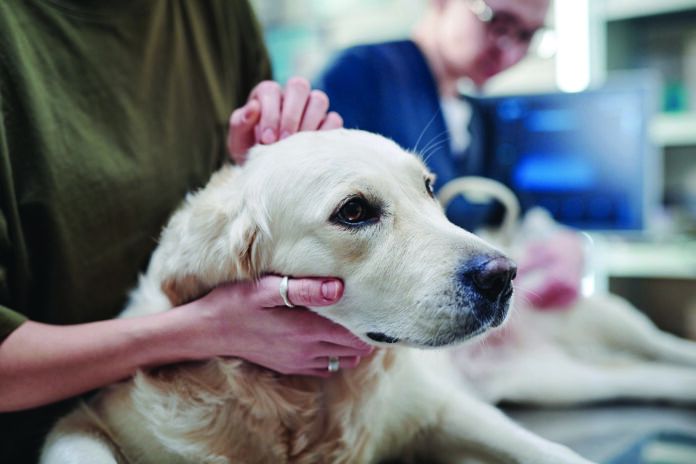As many as one in 50 dogs suffers from acute pancreatitis, sudden and life-threatening inflammation of the pancreas that causes painful pressure around the abdomen in addition to vomiting, fever, nausea, loss of appetite, and a number of other signs. Many dogs end up staying in the hospital in a fight for their lives. But there’s hope in a newly approved drug.
Called Panoquell-CA1 (fuzapladib sodium), it’s an injection for dogs hospitalized with pancreatitis that allows for a speedier recovery and a reduced chance of long-term damage. The drug has been used on dogs in Japan since 2018, but until now, the only treatment in the U.S. was supportive care: intravenous fluids, pain medication, anti-vomiting drugs, and withholding food.
The Food and Drug Administration (FDA) has approved Panoquell-CA1 conditionally. The drug manufacturer must demonstrate “substantial evidence of effectiveness at the conclusion of five years” for the medicine to remain on the U.S. market after that.
Which dogs get pancreatitis
Pancreatitis is a condition in which pancreatic enzymes misfire. Instead of helping to digest food, as they are supposed to, they begin breaking down the tissue of the pancreas itself. That’s what causes the inflammation along with all the other symptoms.
The most common cause of pancreatitis in our canine pets is eating too much fat. (It’s common at holiday time, when people give their dogs fatty table scraps and other fatty treats.) Having a disease such as diabetes also predisposes a dog to getting pancreatitis, as does taking certain drugs, including cortisone. Being obese makes a dog more likely to get pancreatitis, too, along with a physical trauma, for instance, being hit by a car.
Oftentimes, the disease is mild and can be treated on an outpatient basis. All that’s needed is to withhold food and water for 36 to 48 hours and then reintroduce food with a bland diet, perhaps rice and skinless chicken breast.
At the other end of the spectrum, in the most dire of cases, a dog can become critically ill. That’s because the pancreatitis can cause inflammation not just in the abdomen but throughout the body. That level of illness requires intensive care. A dog can develop blood clots, kidney failure, and fluid in both the abdomen and the chest. If not properly handled or if the disease rages out of control too fast, death can ensue.
Once a dog has had pancreatitis, it can recur. The best way to avoid recurrence is to feed a dog lower-fat food. In addition to not giving your pet fatty treats and leftovers from fatty meals, it could very well mean switching your dog to a lower-fat diet. Such a decision should be worked out with a veterinarian, who can counsel you on whether that’s necessary and, if so, which canine diets are lower in fat than the one you’re currently feeding.





